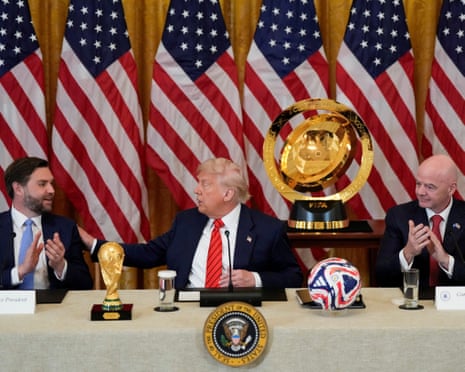SPORTS INFO DASH
Sports Info Dash is your all-in-one hub for real-time sports updates, live scores, in-depth match stats, player profiles, and breaking news across football, basketball, tennis, and more. Stay ahead with the latest in global sports action.
Andrew Giuliani Appointed as Head of 2026 World Cup Task Force: What It Means for Soccer in America
Sports Info Dash

The upcoming 2026 FIFA World Cup promises to be the biggest soccer event in U.S. history. With the tournament jointly hosted by the United States, Canada, and Mexico, all eyes are on the preparation efforts. At the center of this massive undertaking stands Andrew Giuliani, recently appointed as executive director of the U.S. presidential task force for the event. This article explores Andrew Giuliani's new role, the task force's responsibilities, and the anticipated impact on American soccer and the broader sporting landscape.
Who Is Andrew Giuliani?
Andrew Giuliani is the son of former New York City Mayor Rudy Giuliani. He is no stranger to high-profile political roles, having served as a special assistant to President Donald Trump during the former administration. Giuliani's government experience and passion for sports position him as a notable choice for overseeing the World Cup task force. ESPN reported that Giuliani is highly competitive, both in sports and public service, which fits the requirements of this new challenge.
The Role of the World Cup Task Force
The 2026 World Cup is expected to attract millions of visitors and generate significant economic output. Planning for such a large event involves coordination across travel, security, infrastructure, and local business sectors. According to The Guardian, President Trump convened the first meeting of the task force to set the tone for the coming years, aiming for the "biggest, safest and most extraordinary soccer tournament in history."
Andrew Giuliani, as task force executive director, will work alongside FIFA officials, White House leaders, and advisors such as Carlos Cordeiro, a FIFA senior adviser. The task force is charged with ensuring a seamless experience for millions of fans, overseeing everything from visa processing to stadium logistics. The aim is to avoid bottlenecks and ensure visitors feel welcome and secure throughout their stay.
Impact on U.S. Soccer and Economy
Hosting the World Cup extends beyond soccer—it promises a substantial boost for local economies and the job market.
As highlighted by ESPN and The Guardian, FIFA estimates place the economic impact at nearly $50 billion, with the creation of almost 300,000 jobs. These benefits span hospitality, construction, transportation, and many other industries.
Nonetheless, significant challenges remain. Processing visas for international visitors and upgrading infrastructure are top priorities. Homeland Security and transportation officials have pledged to collaborate closely with the task force. Both local governments and the private sector will play key roles in ensuring the event's success.
Challenges and Opportunities Ahead
Concerns about readiness—including visa processing delays and infrastructure gaps—have surfaced in multiple reports. The administration acknowledges these issues and stresses collaboration across federal departments to resolve them. It remains essential that the task force delivers on its promises, as the world's attention turns to North America in 2026.
Andrew Giuliani's leadership will be closely watched as preparations accelerate. For fans and stakeholders alike, the countdown to the tournament is on, promising excitement and opportunities for growth in American soccer.
Learn more about the appointment: Read full details on ESPN.
Dive deeper into the task force's first meeting: Coverage by The Guardian.
Explore official news updates: Reuters announcement.
As Andrew Giuliani steps into his new leadership role, the 2026 World Cup represents not just a soccer milestone, but also a test of America's event-hosting capabilities. Stay tuned for updates as the journey towards the world's biggest sporting spectacle continues.